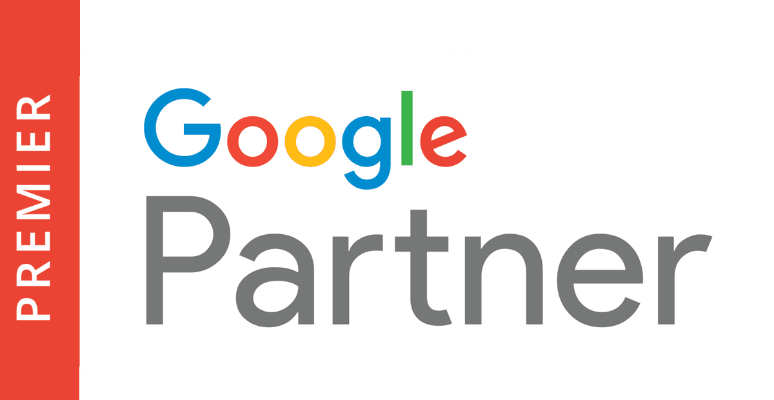Leveraging Actionable Thought-Leadership Verbiage (Or, the double-edged sword of buzzwords)
“If you wish to converse with me, define your terms.” – Voltaire
“The beginning of wisdom is the definition of term.” – Socrates
As with all old quotes, most likely neither famed thinker actually said those exact words.
However, the concept of having clear and unconfused terms before a rational discussion or educational experience occurs is still as important now as it was in the times of Socrates and Voltaire.
Which brings us to buzzwords.
This term was first seen as two separate words (buzz word) and used as slang around the campus of 1940s Harvard. But buzzword quickly became the closed compound noun we know today.
Everyone has encountered buzzwords at some point in their lives, no matter their industry or chosen profession.
Identifying “pain points,” figuring out what best “moves the needle,” and even mapping out all the steps on the customer “journey” all involve buzzwords. (Fast fact: “Journey” is one of the fastest growing buzzwords, with Bloomberg reporting that mentions of it by S&P 500 executives increased almost 70% in 2021!)
While buzzwords can be single words or short phrases, every buzzword seems to have at least one of these main desires:
1. To provide a word for a brand-new thing, concept, or usage
2. To increase a shared vocabulary for an assembly, technology, or industry
3. To generate excitement for a thing by creating an exclusive-to-that-thing word
Let’s explore these uses and the benefits and pitfalls of buzzwords.
1. Buzzwords provide a word for a brand-new thing, concept, or usage
When something new is created, there must be a word for that thing. People need to not only know what to call it, but also (and this is the most important part regarding marketing’s relationship with words) know how to ask for it.
This brand-new word for the brand-new thing might be created from scratch (e.g., dog), adapted from another language (e.g., orange), or be forged from words that already exist (e.g., flowerpot). Sometimes, words even come to be as a typographical error (e.g., shamefaced was actually a mistaken transformation of shamefast).
Sometimes the thing is a tangible product, other times it’s a concept or specific usage. Buzzword itself, for example, is a new word for a new concept. It gives us something to call this ideal, something everyone has agreed upon and understands as soon as it is heard. By being defined, this new thing, concept, or usage can now be discussed and used.
2. To increase a shared vocabulary for an assembly, technology, or industry
This is similar to number one, but with one marked difference. This reason for creating buzzwords is more internal to a company or organization. It’s a way of creating a shared vocabulary to better communicate amongst coworkers and peers. (Hang around our office enough and you’ll hear quite a few Ai buzzwords, often involving spaghetti!) Now, frequently, these terms have a way of sneaking into vernacular, but it wasn’t their original intent.
Think about our industry of marketing. So many buzzwords are used to describe aspects of our world. SEO, for example, plainly describes the process and art of optimizing content to perform well for search engine queries. However, to some folks SEO is a term they throw around knowing they need it but not knowing what it is. As such, it has sort of jumped the semantic shark, so to speak, and gone from a legit term into the realm of the buzzword.
The danger here is that often technical buzzwords can be exploited as they become the bad definition of jargon. Jargon’s primary definition is exactly what we’re describing here: “the language, especially the vocabulary, peculiar to a particular trade, profession, or group.” It’s when jargon is used beyond its intended means that it ventures into the realm of negative buzzwords by cluttering a message’s clarity.
3. To generate excitement for a thing by creating an exclusive-to-that-thing word
This third reason a buzzword is created harkens back to a very old meaning of “buzz” from Britain in the 1620s, “a busy rumour.” These buzzwords are created for the purpose of actually creating buzz. A “Christmas in July” Sales Event. A “sales-apalooza.”
These are the hype words in the marketer’s verbal toolbox. The enthusiastic pallet that paints stories for customers to latch onto, revel in, and decide to become a part of. Buzzwords of this category can be a little more fun than others.
As they are created to stir up excitement, these buzzwords can be almost anything. Often, they take the form of portmanteaus: combinations of already existent words like the “sales-apalooza” example above. Other times they are phrases to contribute to a sense of urgency or exclusivity. “Limited time offer.” “Invite only.” “VIP access.” Anything to generate buzz. These are, generally, the types of buzzwords that people think of when they think of the word buzzword.
Should buzzwords be used?
The million-dollar question is right there: Should buzzwords be used? Well, when it comes to using buzzwords in your marketing, there really is only one rule. Buzzwords should only be used when they will help clearly impart your message to your intended audience.
That sentence has been very carefully worded. Because sometimes your message is for a C-Level executive that expects to read words like “leverage” and “synergy,” and including those words will add clarity to the conversation. That is, you’ll be speaking “C-Suite” language to “C-Suite” readers.
But sometimes, your marketing is for a child’s toy. And most parents don’t want to riddle out how a toy features “the incentivized paradigm shift of proactive play will leverage their child’s bottom line enjoyment.” That’s a confusing mouthful. They just want to know that the toy will be fun for their child.
Which poses the definitive final question (the billion-dollar question, if you will): Are buzzwords good or bad? The answer: Yes. Just like any other word, the magic is in how and when (and, let’s be honest, how often) they’re used. If a buzzword or few helps make your message crystal clear to your audience, go for it. If buzzwords will only generate confusion or ambiguity… then, maybe, you should circle back and ideate a little more.
And of course, when you need help with your marketing, when you want to ensure your message is exactly what your audience wants to hear without fluff or confusion, when you want buzzwords to enhance your brand storytelling without muddying the metaphorical waters, give AdsIntelligence Marketing a call.









